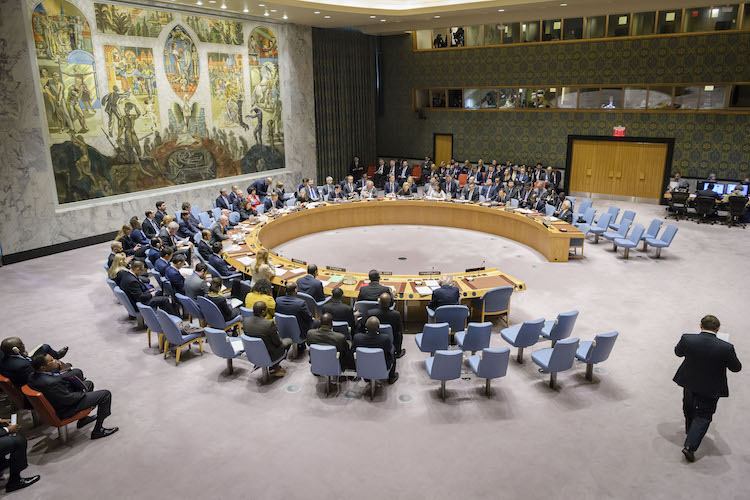
By Marat Beketayev, Minister of Justice of the Republic of Kazakhstan
The UN Security Council organized on 17 May 2018 a High-Level Open Debate on “Maintenance of international peace and security: Upholding international law within the context of the maintenance of international peace and security,” reflecting the purposes of United Nations as spelt out in Article 1 of the UN Charter. Following are extensive excerpts from the draft statement by the Kazakh Minister of Justice who stressed: “Kazakhstan considers this to be a very timely and valuable debate”. Engaging in such reflection is the sign of a healthy institution with strong and far-sighted leadership, and we congratulate Poland on providing such leadership during its time in the chair. – The Editor.
UNITED NATIONS (IDN-INPS) – My country’s commitment to the United Nations began as soon as it became an independent State in 1992. Twenty-five years later [on 1 January 2017], Kazakhstan was deeply honoured to become the first Central Asian State to serve on this Council.
As President Nursultan Nazarbayev made clear in his policy address following Kazakhstan’s election, our country stands ready to assist in the maintenance of regional and international peace and security. Today, we reflect on how best that can be achieved.
Firstly, I turn to what Kazakhstan considers to be a central policy objective for the Security Council. You will recall that Kazakhstan was the first country to give up its nuclear arsenal, twenty-five years ago. In our view, there is no greater threat to international peace and security than the maintenance of nuclear weapons, and there could be no greater achievement than ridding the world of this threat to humanity.
President Nursultan Nazarbayev, in his Manifesto entitled “The World. The 21st century”, presented the idea of a comprehensive program for humanity in order to achieve a world without conflicts by the 100th anniversary of the UN in 2045.
To achieve this and to save subsequent generations from the scourge of war, the Manifesto sets out the collective measures that should be taken to prevent and eliminate threats to peace, and the responsibility each state bears to achieve this end. This is an area in which the Security Council can and must lead the way. This will be a test of whether new processes and ways of working, which the Security Council develops as a result of discussions like today, can bring about real change in the world.
Secondly, Article 33 of the UN Charter provides the Security Council with a variety of tools for the peaceful settlement of disputes that threaten the maintenance of international peace and security. These mechanisms include recourse to regional bodies, whose role is critical for early conflict prevention. The engagement of regional and sub-regional organizations is an essential tool in the maintenance of international peace and security. When considering this topic, we may wish to reflect on whether the Security Council could enhance its legitimacy, and the awareness of its work, if from time to time it held its meetings in other regional centres.
In this regard, I would like to highlight President Nursultan Nazarbayev’s initiative in convening the Conference on Interaction and Confidence-Building· Measures in Asia, which has been successfully functioning for more than a quarter of a century, and, in the context of which, 26 countries from Cairo to Seoul are· conducting significant work in the field of preventive diplomacy.
Finally, we support the efforts of the United Nations as a whole, including the Security Council, to update and adapt its procedures to serve the world well in these challenging times. Today’s very valuable debate should be the start of an ongoing dialogue. Kazakhstan stands ready to provide its own proposals in a constructive spirit. As history shows, States and institutions can thrive where they maintain clear, just objectives and an open mind about the best means to achieve them. This includes, as Poland has outlined, robust mechanisms for enforcement and accountability, to bridge the gap between international law and the reality on the ground. [IDN-InDepthNews – 11 June 2018]
Photo: Wide view of the Security Council chamber as Andrzej Duda, President of the Republic of Poland and President of the Security Council for the month of May 2018, chairs the Security Council meeting on the maintenance of international peace and security, with a focus on upholding international law within the context. 17 May 2018. United Nations, New York. UN Photo/Manuel Elias.
IDN is flagship agency of the International Press Syndicate.
facebook.com/IDN.GoingDeeper – twitter.com/InDepthNews











